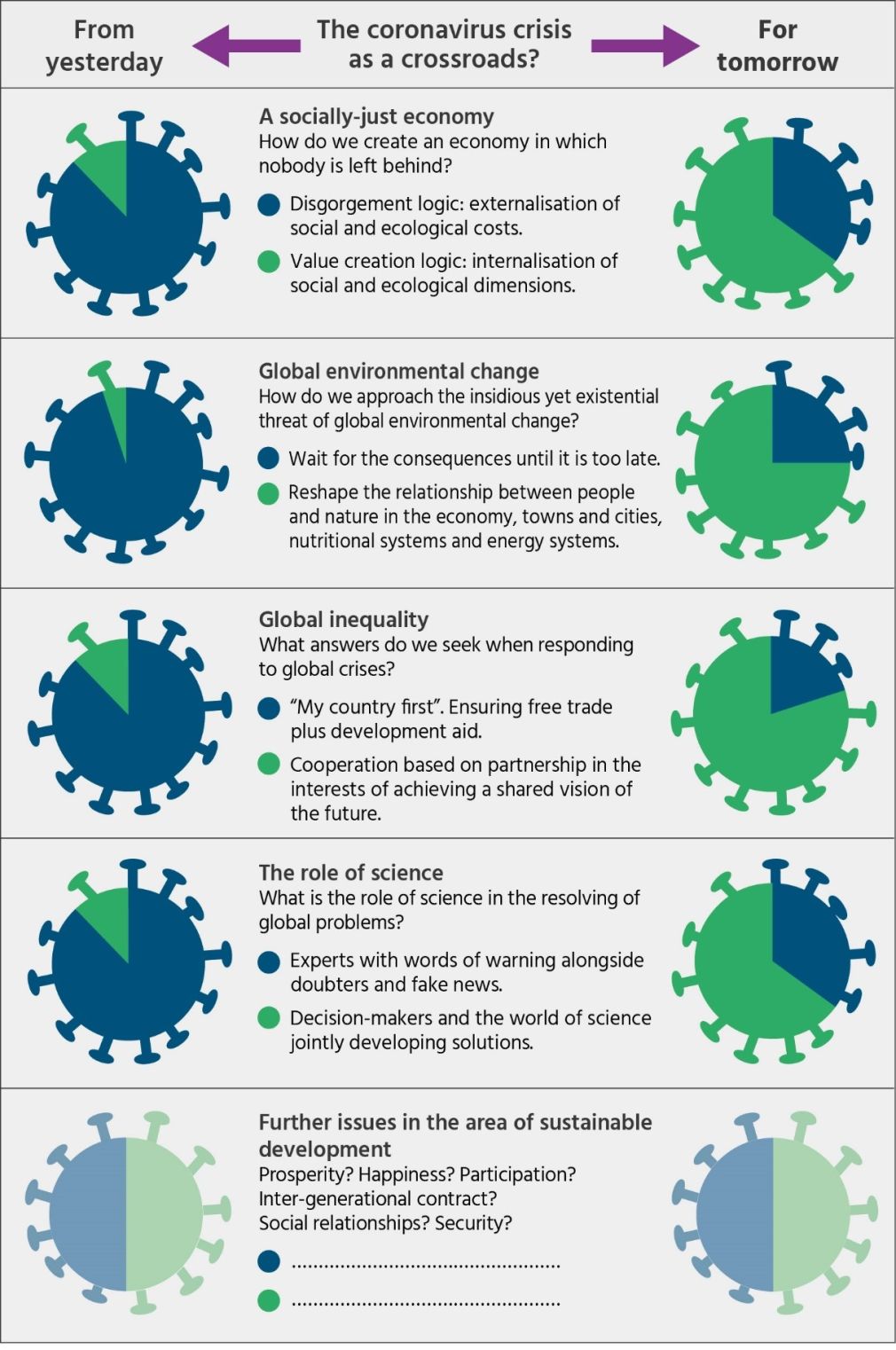
Accelerated by a virus, we have suddenly found ourselves in a possible future. The existential threat appears as if through a magnifying glass, allowing us to perceive the state of the world with increased clarity. With astonishment, we have seen political taboos and unquestioned assumptions falling by the wayside, allowing our institutions to take action. All of a sudden, the tried and tested arguments of interest-driven politics – economic constraints, technological barriers, unchanging behavioural patterns, individual responsibility – no longer seem to be guiding the decision-making. Behind this is a growing awareness that the cur-rent sociopolitical range of actions will be insufficient to cope with future crises, which are just as threatening, but of a completely different nature.
While the world is under pressure to emerge from the Coronavirus crisis as intact as possible, the virus has catapulted us to a crossroads. Can we rise to the challenge of the corona-virus phenomenon with answers from yesterday? Or will we look for the answers of tomorrow which also fulfill the various challenges surrounding sustainable development? On the basis of four areas of action, the figure illustrates that established filters of perception are unable to provide any prospects for resolving future problems. Whether it is the economy, the environment, global justice or the role of science: conventional interpretations of problems and corresponding reflexive solutions aligned to short-term effects have become obsolete. The virally-conveyed clarity shows us the fragility of the achievements of civilization. However, it is also capable of pointing to new concepts for a forward-looking design capability (refer to the figure).

What, however, does the insight that yesterday’s answers are unsuitable for tomorrow’s most pressing questions mean in terms of the increasing gap between the knowledge surrounding upcoming challenges and the capacity to take political action?
In this context, the Agenda 2030 provides us with a compass. The design principles derived from this for a less precarious and more just future are outlined in the Global Sustainability Report of the UN – in our highly networked world, human well-being and an intact environment depend on the ability to take action across sectors and national borders, and with a view to future problems. Turning the clock back on globalization is not a realistic option. On the contrary, we must address the many links between the 17 sustainability objectives. We need to shape the contradictions and synergies between sectors such as healthcare, the economy, food and energy systems, so that the urgently needed transformation towards a more resilient world can be initiated.
We shall gain the capacity to act by combining political will with the existing knowledge. This can succeed if we overcome the sectoral fragmentation of the stakeholders driving change in the world of politics, the economy and society, and we have the courage to act on the basis of knowledge which is also incomplete. After all – we know enough, and the Coronavirus crisis has shown how new alliances of decision making can emerge. The future is now.
Corona Sustainability Compass – manage today, master tomorrow. The Corona Sustainability Compass is a new initiative lead by UBS (Umweltbundesamt) in partnership with the ISC, Future Earth and Stiftung 2° (Foundation 2°). For more information click here